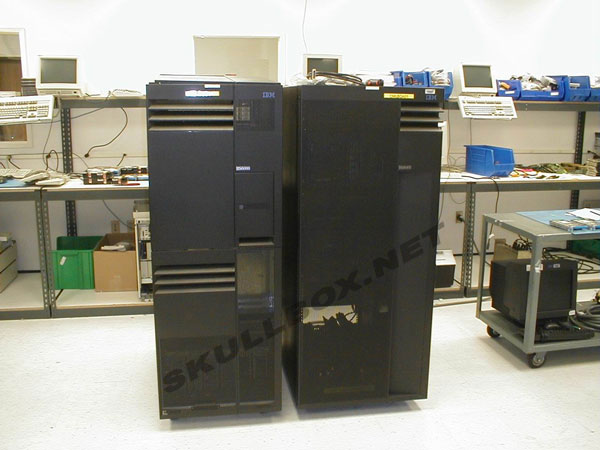
|

|

|

|

|

|

|

|

|

|

|

|

|

|

|

|

|

|

|

|

|

|

|

|

|

|

|

|

|

|
 |
|
|
|
|
Mailing List
|
|
By Joining the mailing list you will be notified of site updates.
|
|
Show Your Support For
This Site By Donating:
|
|
|
|
|


|
|
|
|
|
|

This article contains information about mainframe servers.
What is a Mainframe Server?
A mainframe server is a very large and powerful server or group of servers. There are only a few companies that produce true "mainframe servers." Mainframes are sometimes called "Enterprise Servers" or "Super Computers." While the term server can refer to hardware or software, mainframe server always refers to hardware.
Chassis and Operating System
Mainframe servers often resemble a refrigerator. They are very large and usually designed in a modular format. Each module contains arrays of CPU's, memory, and disk drives. They have hot-swapable power supplies, and all components such as disk drives, CPUs, and memory cards can be hotswapped. Companies like IBM, Sun Microsystems, HP, SGI, and Cray produce some of the most powerful mainframe computers in existance. Most of these machines run some type of proprietary operating system. For instance, the Cray SV1 system runs an OS called UNICOS. IBM mainframes can run a variety of OSes but they commonly run OS/390, z/OS, or AIX UNIX. Modern IBM mainframes are commonly running Linux. All mainframe OSes are some derivative of UNIX compiled to support the extremely powerful architecture of these machines. These machines usually contain some special type of CPUs. Some of these CPUs are designed specifically for mathmatic computations. These CPUs are commonly found in mainframes that need do number crunching for medical research. The image below shows a picture of an IBM mainframe server. You can get an idea of its size by the CRT monitor located on the ground to the right.

Mainframe Usage
You might wonder what a mainframe server is used for? While its use is limited, a mainframe server can be used as a an application server that also houses all the data. Often large corporations develope custom applications that run on their in-house mainframes. Large universities and research organizations also use mainframes for various projects. Mainframes can be clustered together to harness the power of multiple servers and perform a single task. Cancer researchers use clusters of IBM servers to perform linear algebra and other mathematical operations needed to complete research. On the fun side, Sun Microsystems is now leasing their enterprise servers to certain groups such as animators and graphics producers to perform rendering.
Contact Us
NOTE: this form DOES NOT e-mail this article, it sends feedback to the author.
|
|
|
|
|
|
